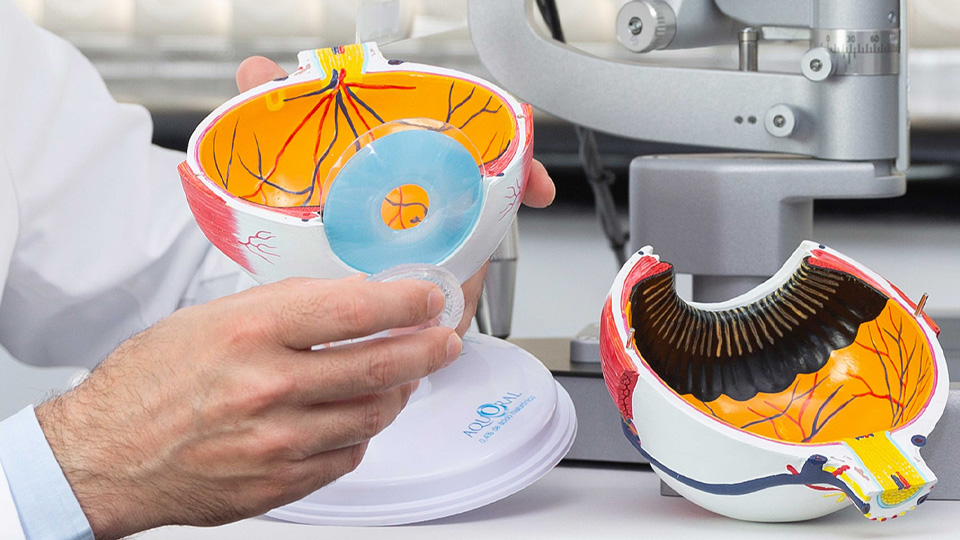Contribution of clinical trials to eye health
28/01/2026

04/06/2024
Phakic intraocular lenses (ICL) are an option like LASIK or PRK, particularly beneficial for patients who are not suitable candidates for other refractive surgeries. This includes individuals with high refractive errors, severe dry eyes, or thin corneas.
Am I eligible for surgery?
The protocol for performing treatment with this type of lenses, although it may vary depending on the patient’s history and case evolution, generally follows these steps:
First visit
Preoperative exams
Testing can take place at any time between the first visit and the day of surgery, both included, depending on the needs of each patient. We carry out a very extensive prior study to offer you a surgery with the maximum guarantees.
Day of intervention
The operation is outpatient and lasts 20 minutes. It is performed on each eye separately, with a week between the first and second intervention, a method that enhances the effectiveness of the surgery. Afterwards, you will stay in the pits for 30 minutes and go home with your eye covered.
The intervention
Medications are prescribed to prevent infection, and instructions on post-surgery care are provided.
Control visits
You will have six postoperative visits: one visit the next day, another one a week later, and another one a month after each intervention.
Results
The results of phakic intraocular lens implantation are usually highly satisfactory in terms of visual correction. Most of the time, complete recovery and stabilization of vision is achieved within a couple of weeks.
Although the results are expected to be long-lasting, it is crucial to keep in mind that the surgery is corrective and not curative. Therefore, there may be changes in the prescription, which could require additional adjustments in the future.
Almost all wearers of glasses and contact lenses consider reducing their prescription with refractive techniques at some point. In this chapter we explain all the options and help you know when it is worth having surgery, who is a good candidate and why it is so important to choose where to go.